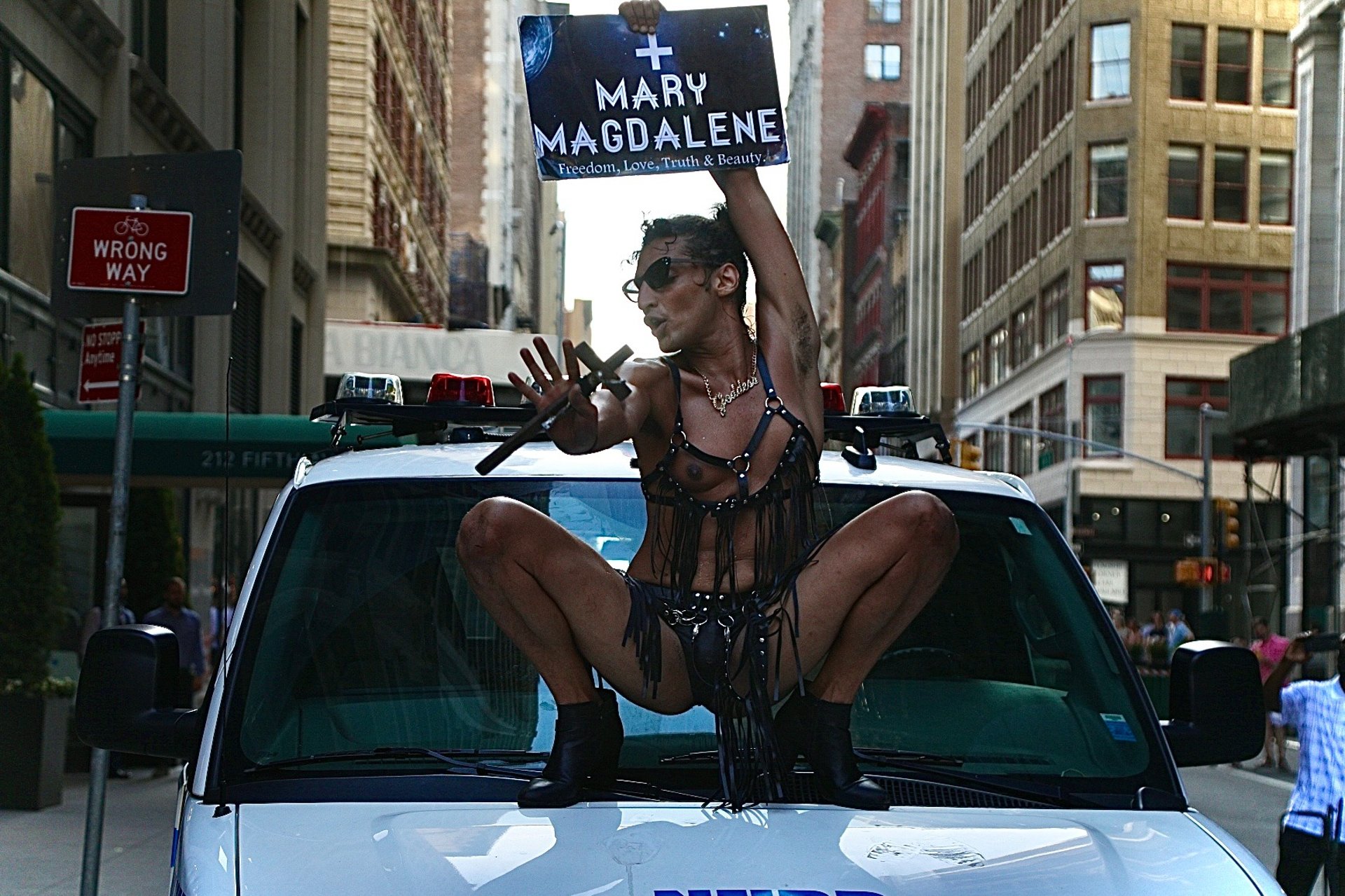
“I use my body to confront systems of violence.”
I do not separate my body from my politics.
I do not separate my art from my resistance.
When I dance, I am organizing. When I speak, I am dismantling. When I move through the world, I carry centuries of defiance in my spine.
Every performance I do is a response to something happening in the world — police violence, anti-trans laws, genocide, labor exploitation. I use public space to call it out and demand something better.
This is about visibility, truth, and survival.
It’s about refusing to stay silent when people are dying — and using my voice, my body, and my platform to stand with those who are being targeted, erased, or forgotten.
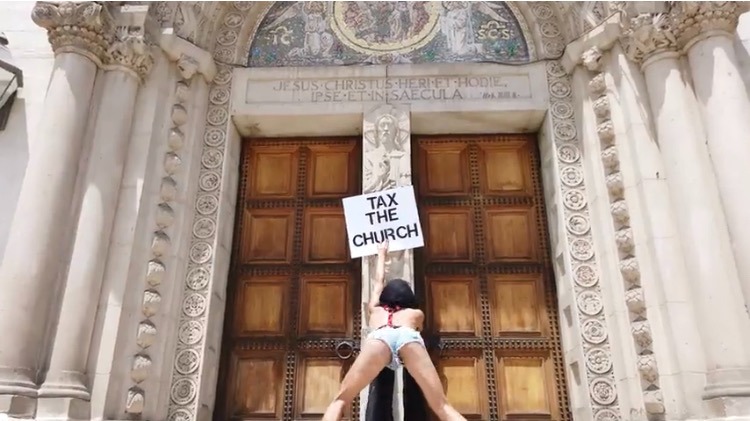

I grew up in a society where religion was used to control — not to heal. It was used to justify racism, homophobia, and transphobia, and to shame people for who they were. I was told my existence was sinful, my body was wrong, and my voice didn't belong. Today, I challenge those beliefs directly.
I use my art and my presence to confront how religious institutions continue to justify violence — especially against queer and trans people, women, and those fighting for bodily autonomy. Whether I’m performing inside a church, carrying a crucifix through the streets, or calling out the silence around abuse, I’m reclaiming space that was used to harm.
I don’t reject faith — I reject its weaponization. No one should have to choose between their identity and their dignity. My work speaks to the people who’ve been exiled, erased, or condemned in the name of religion. Because we are not the problem. The systems that punish us are.
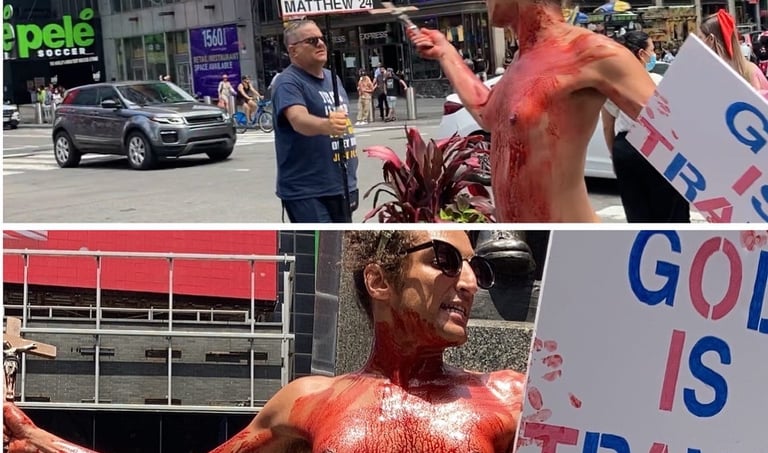

Trans and queer liberation means more than survival — it means being able to live fully, loudly, and without apology. It means we are no longer treated as experiments, as threats, as burdens, or as symbols of someone else’s discomfort. I dance for the girls who didn’t make it. For the boys who were punished for softness. For the kids with no language yet to express their truth, but who feel it burning in their bones.
Liberation looks like healthcare without judgment. It looks like love without shame. It looks like a world where we are not fighting to prove we are human — because our joy, our rage, our gender, and our bodies have never needed permission to exist. Every time I move through the street, through a protest, through a cathedral, I am not just seen — I am felt. Because transness is not confusion, it is clarity. It is the future. And we will not be legislated out of it.
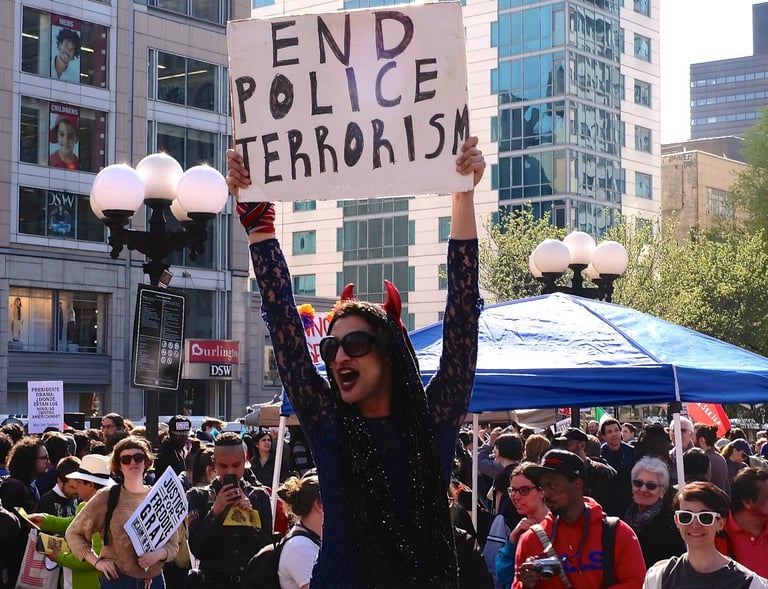

I fight for racial justice because I’ve lived what it means to be seen as both too Black and not Black enough — to be made to feel like you don’t belong anywhere. My father was a Black Cuban refugee. I was raised by my white American mother in a household where racism was deeply normalized — and I was the reminder of everything that didn’t fit. I grew up learning to suppress the parts of myself that tied me to my racial and ethnic identity. I learned to hate my Blackness before I had the chance to understand it.
Racial justice, for me, is not abstract. It’s personal. It’s about healing the wounds inflicted by the people who raised me, while fighting the systems that trained them to hate what I am. I’ve had to unlearn years of internalized racism, anti-Blackness, and silence. That process was never passive — it’s something I’ve had to fight for, every single day. My work stands in direct confrontation with white supremacy, anti-Blackness, and the myth of American innocence.
I confront institutions of power with my body because I know that’s where the violence has always landed. Through performance and protest, I’ve reclaimed my identity on my own terms. My art challenges the systems that target Black and brown bodies — from the ongoing legacy of slavery to police violence to the erasure of Afro-Latinx voices.
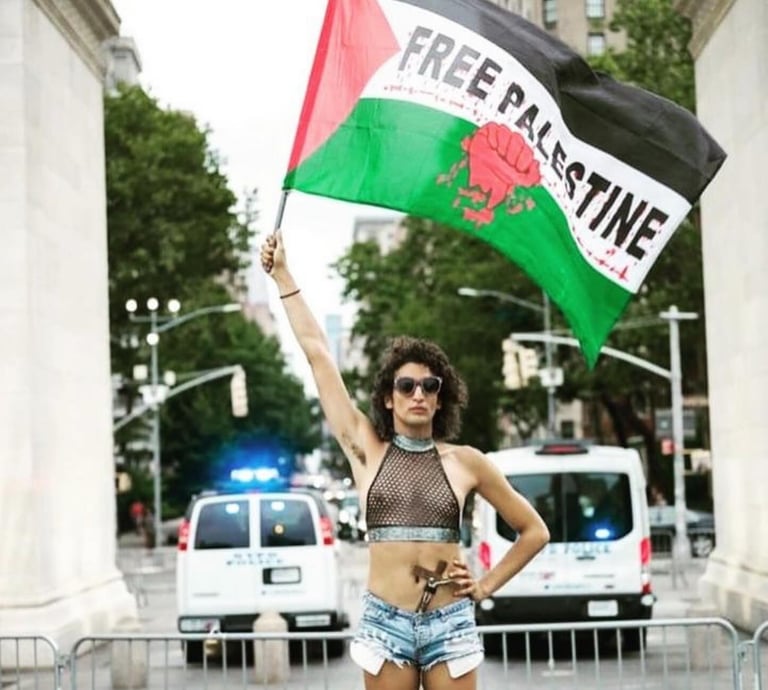

The struggle for Palestinian liberation is one of the defining human rights crises of our time. My work for Palestine is about exposing the truth that many refuse to see — that genocide, apartheid, and occupation are not distant issues; they are global patterns of oppression tied to the same systems that target Black, brown, and queer lives everywhere.
My work connects faith, history, and protest. I carry the crucifix through public spaces to expose how religion and empire have always walked hand in hand — from the Roman occupation that executed Christ, to the modern powers funding and defending apartheid. I perform in solidarity with the Palestinian people because their struggle for freedom mirrors the fight against state violence everywhere. Through art and direct action, I call attention to the weaponization of religion, nationalism, and fear that allows entire populations to be dehumanized.
I stand with those who resist colonialism in all its forms. I stand with the people of Palestine because I know what it means to be dehumanized by empire. I know what it means to be told your suffering is justified. To stand for Palestine is to stand for Indigenous sovereignty, for Black liberation, for trans and queer survival, and for the dismantling of every empire that feeds on human suffering. I believe the fight for liberation is one struggle. From Gaza to Harlem, from the border wall to Rikers, all systems of domination are connected — and all of them must fall. My activism insists that liberation is not selective. None of us are free until all of us are free.